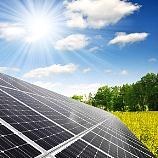(BRUSSELS) – The European Commission outlined an extensive set of reforms to the EU’s energy system Wednesday, with a view to maintaining competitivity in a global transition to clean energy.
With the EU committed to cut CO2 emissions by at least 40 per cent by 2030, and also modernising the EU’s economy, the legislative proposals entitled ‘Clean Energy for All Europeans’ cover energy efficiency, renewable energy, the design of the electricity market, security of electricity supply and governance rules for the Energy Union.
The aim of the energy package is to help fulfil EU commitments under the Paris global climate change agreement. The EU is committed to cut CO2 emissions by at least 40 per cent by 2030.
The package includes proposals to revise the Energy Efficiency Directive, the Energy Performance of Buildings Directive and the Renewable Energy Directive, as well as new proposals on the design of the electricity market and on the governance of the Energy Union.
There are also measures to encourage public and private investment, promote EU industrial competitiveness and mitigate the societal impact of the clean energy transition.
The Commission says it is are also exploring ways in which the EU can show further leadership in clean energy technology and services ‘to help third countries achieve their policy goals’.
Making the most of what is termed a transition to clean energy is the theme of the package, and Energy Commissioner Miguel Arias Canete said the proposals would “provide a strong market pull for new technologies, set the right conditions for investors, empower consumers, make energy markets work better and help us meet our climate targets”.
He said he was proud of the binding 30% energy efficiency target, which would reduce the EU’s dependency on energy imports, create jobs and cut more emissions: “Europe is on the brink of a clean energy revolution. And just as we did in Paris, we can only get this right if we work together. With these proposals, the Commission has cleared the way to a more competitive, modern and cleaner energy system. Now we count on European the Parliament and our Member States to make it a reality.”
The Commission’s proposals are being seen as a significant step in the direction of achieving the agreed climate targets within the framework of an EU-wide Energy Union. But environmental groups have also criticised the package as failing to show bold leadership on renewable energy or rising properly to the challenge of Paris.
Friends of the Earth Europe said: “Seeing citizens placed at the heart of the energy transition is a beacon of hope amongst an otherwise gloomy, fossil-fuel-heavy package. The European Commission has recognised the benefits of community-owned renewables and cooperatives, but is failing to kick its fossil fuel addiction, at the expense of the climate, and the Paris agreement.”
Greenpeace says the package threatens to “derail efforts to accelerate the roll-out of renewables”. WWF says the proposals “leave the door open to subsidies for the next ten years, undermine support for renewables, and miss some big opportunities on energy efficiency”.
The proposals now need to be addressed by the European Parliament and to the Council.
All documents on the Clean Energy package
Fact sheet: Putting energy efficiency first: consuming better, getting cleaner
Fact sheet: Achieving global leadership in renewable energies


